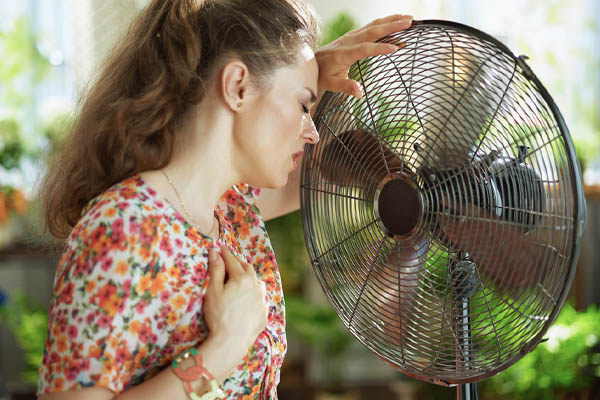
Home comfort is more than just regulating the indoor temperature. It also includes other factors such as humidity, which is the amount of moisture in the air. People can see and feel the adverse impact humidity has when it increases higher than the ideal level. “Why is my house so humid?” is a common question homeowners usually ask themselves. This article discusses how excess humidity happens and what can be done to solve this indoor air quality problem.
Why Does My House Feel So Humid?
Contents
- 1 Why Does My House Feel So Humid?
- 2 Why Excess Humidity Is Bad
- 3 How Can You Tell If You Have Excessive Humidity in Your Home?
- 4 Causes Of High Humidity Levels in Your Home
- 5 Benefits Of Good Humidity Levels
- 6 How To Decrease Humidity in Your House
- 7 Call PFO Heating & Air Conditioning For All Of Your HVAC Requirements
Check the indoor humidity if you have an air conditioner that works fine, but you still feel uncomfortable. The humidity level probably rose too high. According to experts, the moisture in the air should be around 30% to 50%. A drop from the minimum is problematic, and a rise from the maximum suggested level is also bad for your home. Excessive indoor humidity may be caused by incompatible equipment, property damage, poor design, and environmental factors.
Why Excess Humidity Is Bad
Our bodies sweat when it’s hot to start evaporative cooling. Excessive humidity translates to a high amount of moisture in the air. As a result, sweat cannot easily evaporate, so it remains on the skin, causing people to feel hot and sticky whatever the indoor temperature is. You may also experience dehydration as the body continuously sweats to cool down without relief. Replenishment of the lost water and electrolytes is a must.
The home’s occupants may also have health problems. Bacteria thrive in hot and humid places, and areas with the highest moisture content become their perfect breeding ground. This also includes mold, mildew, and dust mites. Mold spores can trigger allergic reactions in sensitive individuals, while those with compromised respiratory problems may experience asthma attacks. People may also suffer from breathing difficulties and problems sleeping at night.
How Can You Tell If You Have Excessive Humidity in Your Home?
Excessive humidity is obvious if you are aware of what to look for. Signs can be found everywhere, and you may have even seen them before but didn’t make the connection. This list gives you an idea of what to look for when you do a thorough checkup:
Visible Condensation
Cold weather means that the water in the air can turn from gas to liquid. This usually happens around window panes. Water droplets on the glass blur it, so you need to wipe them off to be able to see through properly again. Visible condensation may also be found on metal doors.
Peeling Paint
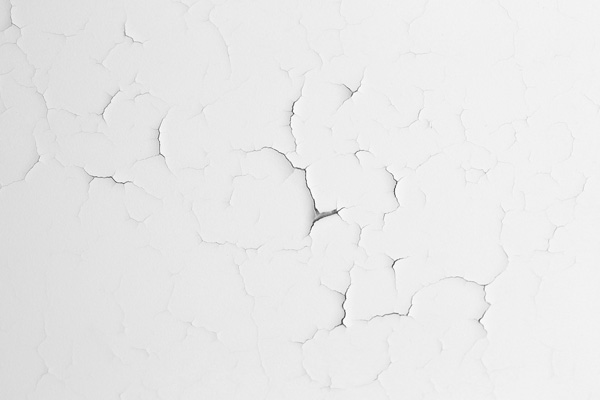
High humidity can also cause moisture on the walls. Bubbles and wrinkles may have developed on the paint or wallpaper as well. The paint may peel off because they are always exposed to moisture.
Wet Stains
Look at the ceiling to see if its color is still uniform. Wet stains are clues that the home has high humidity. These stains can even extend to the walls at times.
Dark Spots
Dark spots on surfaces can point to mold and mildew. The fungi are usually colored black or dark green. Mold flourishes in highly humid areas like perpetually wet bathrooms, attics, basements, and kitchens.
Persistent Sweat
The number one physical sign of high humidity is persistent sweat. Normally, sweat quickly evaporates from the skin to give you that cooling effect. Sweat that never goes away means you’ll feel hot and sticky. It can’t evaporate as the air in your surroundings is already thick with moisture.
Causes Of High Humidity Levels in Your Home
Here are several reasons your home is suffering from high humidity levels:
Everyday Activities
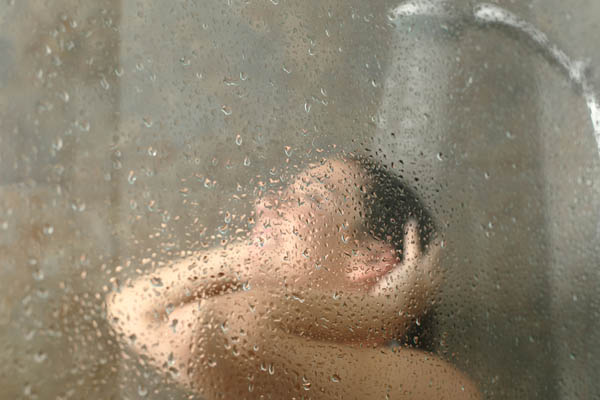
Water is used in our homes for washing, bathing, and cooking. Some of these waters evaporate and become water vapor, impacting the humidity levels of the indoor air. The humidity will then increase, but only temporarily if you have a home with a good design.
Poor Ventilation
Wet areas need good ventilation so the excess moisture can be released outside, and the indoor humidity stays within the ideal level. For instance, bathrooms are usually fitted with windows or exhaust fans to handle the moisture.
Plumbing Leaks
Plumbing or roofing leaks can cause excessive moisture. You may have to hire a plumber or roofer to repair these issues. They can find the leaks and repair them permanently.
Moisture Seepage
Be mindful of the water that gets in your home via the ground. They can seep through the walls and cause the basement surfaces to become wet. Waterproofing and proper ventilation are needed to keep this problem at bay.
Oversized Air Conditioner
The surplus in moisture may be due to a mismatch in air conditioner size and the home’s cooling needs. An oversized air conditioner will reach the set temperature immediately. As a result, it will shut off automatically before dehumidifying your home. It may be necessary to replace your HVAC system.
Benefits Of Good Humidity Levels
High humidity causes high pollutants and allergens levels in your home. Controlling how much water is in the air means you can reduce unwanted particles in the air and prevent respiratory issues in your home. Homes will become healthier environments, and there will be no sweaty and sticky feeling. Reduced humidity levels help your home become more comfortable all year round.
On the other hand, having extremely low humidity results in different problems. Your household may experience sore eyes, nasal congestion, irritated sinus, and dry skin. It also causes the wallpaper to peel off and the hardwood floors to crack and separate. Houseplants can also wither. Wooden furniture can also get damaged if low humidity persists in your home for a few weeks. Therefore, the humidity must be kept within the ideal range at all times. Some indoor thermometers can monitor both your indoor temperature and humidity to help you.
How To Decrease Humidity in Your House
Here are several steps you can take to decrease your home’s humidity:
Use a Dehumidifier
A dehumidifier can remove the moisture in the air, lessening the indoor humidity. They are available in various sizes, so you can find one compatible with your home’s needs. Homeowners should also discuss whether to use a whole-house dehumidifier for their home.
Improve Ventilation
Areas with high moisture like the bathroom and kitchen should have good air movement. Therefore, keep windows open in these areas as much as possible. Turn on exhaust fans if there are any to push the humid air out as well.
Apply Weatherstripping
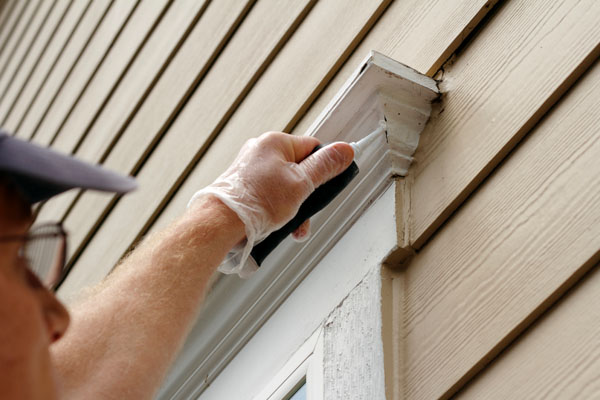
Keep humid air from the outside from getting inside. Do so by using weatherstripping products to seal the edges of your windows and doors. This way, you create an airtight seal. You can also use caulking on the edges of wet areas such as tubs, toilets, and sinks.
Increase Insulation
Prevent conditioned air from moving across walls via gaps using insulation. Moreover, insulation also acts as a thermal barrier between indoor and outdoor environments.
Proper Air Conditioning Sizing
HVAC technicians can help you find out if your current air conditioner is the right size for your home during a routine tune-up. Old air conditioners that are too large may need to be replaced with a more suitably sized one to match your home’s cooling needs. This helps reduce humidity to the ideal range.
Conclusion
Many households deal with excessive humidity. Confront the problem directly to stop the discomfort and have a healthier home environment. Try the steps above to reduce the moisture in the indoor air. Consult an HVAC technician if the problem doesn’t get any better. They can help you by using advanced solutions at affordable prices.
Call PFO Heating & Air Conditioning For All Of Your HVAC Requirements
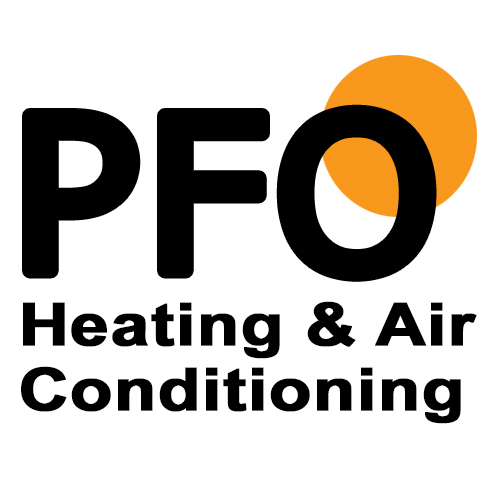 For high-quality heating and cooling services in the Greater Princeton, NJ area, call PFO Heating & Air Conditioning. We have the best professionally certified technicians who can perform excellent HVAC installations, replacements, maintenance, and repairs. Our friendly techs have the experience, skills, and knowledge to service your HVAC system promptly and correctly.
For high-quality heating and cooling services in the Greater Princeton, NJ area, call PFO Heating & Air Conditioning. We have the best professionally certified technicians who can perform excellent HVAC installations, replacements, maintenance, and repairs. Our friendly techs have the experience, skills, and knowledge to service your HVAC system promptly and correctly.
PFO Heating & Air Conditioning offers one of the most affordable HVAC service rates in the locality. Our tune-up services help increase your energy efficiency, home comfort, and indoor air quality while lowering energy costs. We can recommend the best solution for your HVAC repair or replacement system needs while keeping your budget in mind. All our work is guaranteed. Schedule a service appointment and contact PFO Heating & Air Conditioning today. We offer free, in-home estimates.
Click here to contact us now or call us at (800) 253-9001 to find out more!



